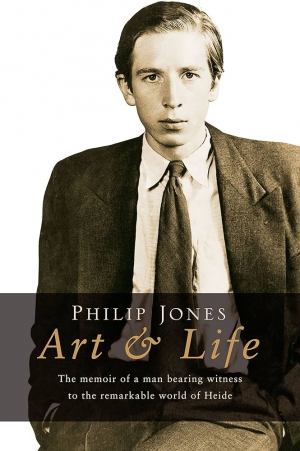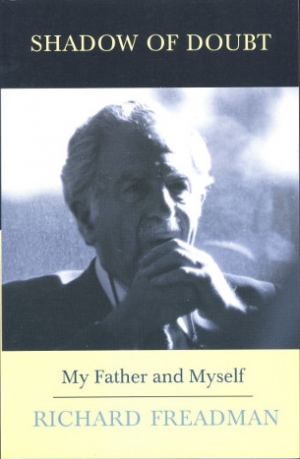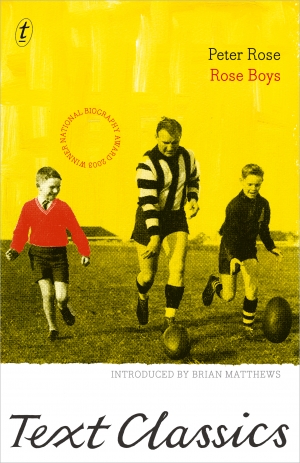Peter Rose
Peter Rose reviews ‘Great Music Makers’ by Louis Kahan (intro. Michael Shmith)
ABR readers may be more familiar with Louis Kahan’s illustrations for Clem Christesen’s Meanjin or with his portrait of Patrick White (which won the Archibald Prize in 1965) than with his sketches of musicians, but this stylish book from Macmillan Art Publishing reveals not just the fluidity of Kahan’s style but also his passion for music and music-makers. And what a range of artists he could draw on (mostly at rehearsals) during the second half of his life. Present-day concert-goers, inured to leaner rostrums resulting from high fees and a faded currency, will marvel at the list of luminaries who performed here during the three decades after the war. There is Claudio Arrau (1947), grave and poetic; Otto Klemperer (1950), Olympian, bespectacled; a young Lorin Maazel (1961), gaunt and driven like a Schiele self-portrait; Luciano Pavarotti (1965) before the years of glory and girth; and Marian Anderson (1971), mighty in her sensible hat.
... (read more)for Craig Sherborne
‘Grief wrongs us so.’
Douglas Dunn
To the sea we bear our fathers in state –
or what they’ve done to them: the square conversions.
Surf mild as receding tides,
we slump in dunes with our burdens,
... (read more)My theme is the mixed and contentious business of reviewing: its influence, its limitations, its present condition in what we like to call our literary culture. I will largely confine my remarks to the literary pages of our newspapers and magazines. I don’t propose to comment on the learned journals – or criticism at monograph length issuing from the academy. (Not, sadly, that there is much of that kind of publishing in Australia these days.)
... (read more)Book covers are just expensive hints, and the jacket adorning Philip Jones’s memoir of Heide and beyond is suitably suggestive. Jones may not be especially literary, but he looms at us – first youthful, now in his early seventies – as a kind of antipodean Auden: languid, floppy-tied and with searching eyes. That direct, if hooded, gaze introduces us to a soi-disant minor figure in our cultural history, but one who had an intimate place at Heide in the 1960s and 1970s, and who has known some of the authentic characters and creators in Australian art and letters.
... (read more)Peter Rose reviews ‘Shadow of Doubt: My Father and Myself’ by Richard Freadman
Richard Freadman’s first work intended for a non-academic readership is, in his own words, ‘the Son’s Book of the Father’ and thus belongs to a venerable genre. Freadman, whose contribution to our understanding of autobiography has been acute, is well qualified to draw on this tradition in portraying his own father and analysing their relationship. Along the way, he discusses memoirists such as John Stuart Mill, Edmund Gosse and Henry James.
Shadow of Doubt: My Father and Myself can’t have been an easy book to write. Few family memoirs are, if their authors are honest about their families and themselves. Freadman knows that autobiography is a ‘chancy recollective escapade’. ‘My father,’ he writes, ‘was an extremely, an impressively complex man, and there is no single “key” to a life like this.’
... (read more)When Barry Humphries published his first volume of autobiography, many readers were left wanting ‘More, please’ – avid as gladdie-waving victims during one of his shows; voracious as the greedy polymath himself ...
... (read more)Joy Hooton reviews ‘The Facing Island: A Personal History’ by Jan Bassett
The facing island in Jan Bassett’s memoir is Phillip Island, where her maternal grandparents had a dairy farm and where it seems she was most emotionally at home. Summer holidays there as a child in the 1960s, in the midst of her grandmother’s extended family and surrounded by familiar tokens of past decades reaching as far back as the early 1900s, undoubtedly sparked her lifelong commitment to Australian history. The title, taken from Peter Rose’s poem ‘Balnarring Beach’ (‘The facing island, a mortal blue, / beckons, intensifies, vanishes’), could hardly be more appropriate, compressing in a few words much of the emotional intensity of Bassett’s autobiographical last journey.
... (read more)Welcome to our final issue for 2001! Our summer issue – arrestingly illustrated on the cover – is a double one, and longer than previous ones this year. Funds permitting, we hope to be able to publish more eighty-page issues in 2002, especially in the second half of the year, when so many Australian books, both general and scholarly, are published. This expansion allows us to add new features: ‘Best Books of the Year’ column (children’s as well as adult books); short fiction; and a ‘Summer Reading’ column, containing brief reviews of worthy titles for which we haven’t been able to find the wonted page or two. Columns such as ‘Best Books of the Year’, in which various critics nominate two favourite books of the year and one ‘surprise’, are certainly not intended to be the last word on the subject. Such columns are inevitably subjective. But it is interesting to hear from some of our regular critics and contributors about their assessment of quality publications here and overseas. If it points some readers to fine books they may have overlooked, I think it is worthwhile.
... (read more)In February 1974, Robert Rose, a twenty-two-year-old Australian Rules footballer and Victorian state cricketer, was involved in a car accident that left him quadriplegic for the remaining twenty-five years of his life. The tragedy received extensive press coverage and struck a chord with many in and beyond the Melbourne sporting community ...
... (read more)‘A pox on the GST!’ wrote one of our many new readers last month when filling in her subscription form. ABR has long been famous for its feisty correspondence (never more so than last month). This editor is not about to disagree with our new subscriber. The imposition of GST on books and magazines surely rates as one of the crasser political acts in recent years. Anyone unsure of its effect on literature in this country should ask booksellers and publishers what sort of a year they had in 2000. Readers weren’t unscathed, either.
... (read more)






